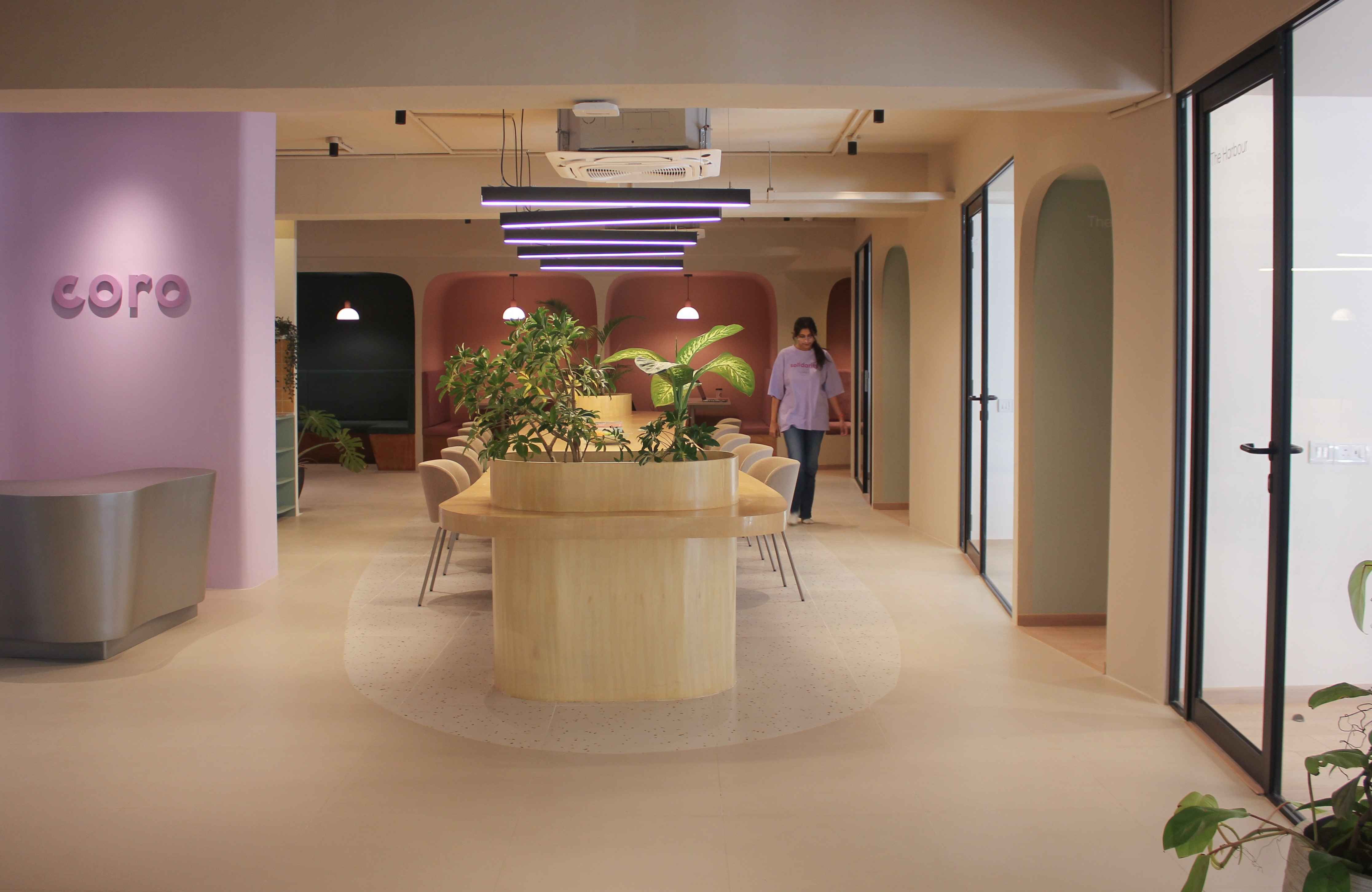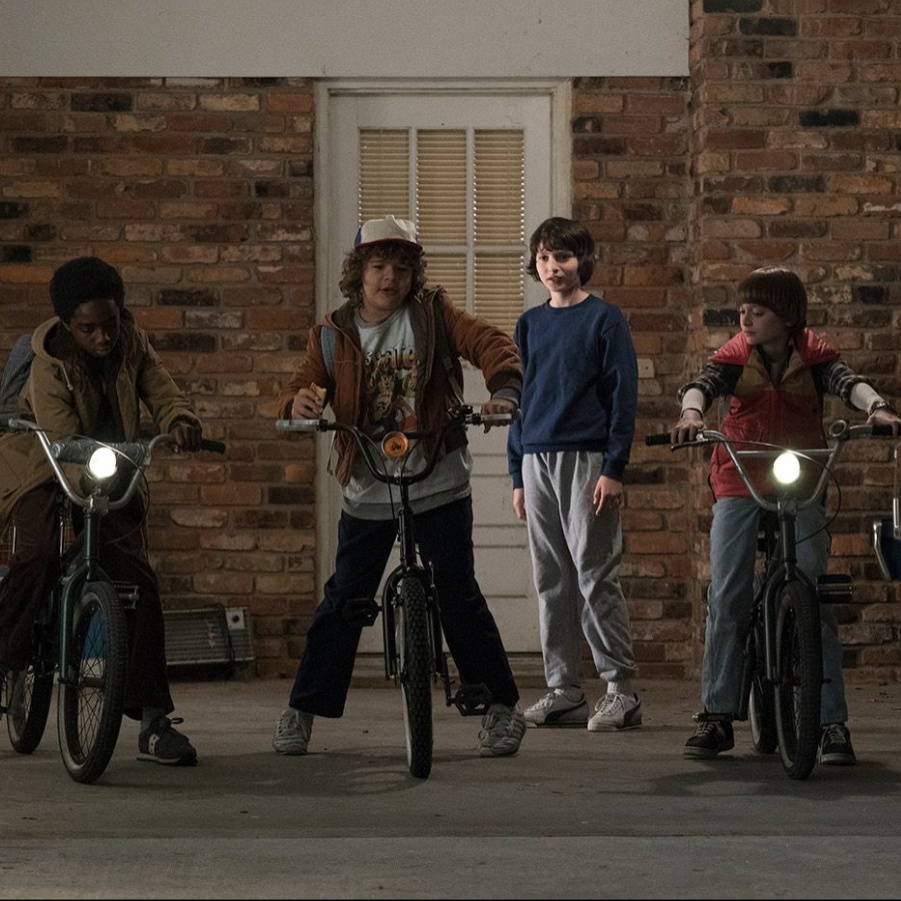India is said to have the third largest start-up ecosystem in the world. This growth, along with changes in office structures post-COVID, and in traditional family structures (a study by Kantar Worldpanel in 2022 found that 50 per cent of families in India are now nuclear) have led to both opportunities and challenges for young parents focused on building families and setting out on entrepreneurial journeys. “It really did come from our pressing needs as ambitious moms. Bengaluru has a lack of adequate infrastructure for children and families, and we felt we constantly had to choose between our professional lives and who we were as women,” adds Pick.
Unlike the severed employees of Lumon from Apple TV+’s Severance, most of us cannot differentiate our work from home. Work ends up coming home and we get some of our home chores to work as well. And that’s how Coro is built: as a space that answers all the needs of modern, urban parents who are focused on their entrepreneurial journeys. And it looks good too. Designed by Bhavana Kumar’s Kumar La Noce (she is also Coro’s chief design officer), Coro is a calming haven with a soothing palette, arches, organic detailing and a lot of natural light.
Over e-mail, Coro’s founder, Pick and their strategic board advisor, Seth, shed more light on this unique space.
You describe Coro as India’s first family-focused club. What does it really mean?
Tena Pick: Children are a key focus. There is a long tradition of clubs in India—from traditional ones like Bangalore Club to new hip ones like Quorum. Our strong focus on families and centering the needs of a working parent, rather than treating children as an afterthought, is our differentiator. As a working, entrepreneurial mom myself, I have seen first-hand the need for infrastructure that responds to the specific needs of working parents—from nap nooks to meeting rooms and spaces to network and socialise. For us, families are at the core of what we do, but we’re not focusing on only one aspect of our lives.
Tanushree Seth: Coro is not designed to be just a “co-working” [space] or just a “playscape”. It’s been intentionally designed to support entrepreneurial parents in this journey of building their businesses and careers while also growing their family. So, work and play happen very intentionally here; it’s also “inclusive” in that the community is largely focused on entrepreneurs and founders. We find our members are committed to helping each other build more connections in the business world, finding support through our support networks, and overall, focus on building a connected, tight-knit community.
Coro is not designed to be just a “co-working” [space] or just a “playscape”. It’s been intentionally designed to support entrepreneurial parents in this journey of building their businesses and careers while also growing their family.
In the US, there are platforms like Chief that connect C-Suite women executives together. Did you refer to or model Coro on something you’ve seen or experienced?
TP: We are first and foremost a community of, and for, founder parents. The word ‘community’ is critical here because that’s what sets us apart from other co-working spaces. The entrepreneurial cohort in India will continue to grow at a rapid pace, and by virtue of that, parent founders will continue to grow. Coro is a third space (outside your home or office) for those who want to focus on both their careers and their families and are not willing to compromise on either. It’s the access to “the village” of like-minded parents, an opportunity for children to grow and explore in a safe environment, and parents to build their network and their work.
TS: We are also not a women-only space or network [like Chief]. Rather, we truly believe that we can only support families, and by extension mothers, by creating ecosystems that allow all members of their family to thrive without compromise. There are similar clubs in the UK, like Jaego’s House.
You talk about Coro as aiding in building networks and connections. What is your member profile and how can someone join the community?
TS: Entrepreneurs come from a variety of industries, the ratio of men and women is an equal split, and most of our members are in their mid-thirties to mid-forties. Some lead second-generation businesses or first-generation direct-to-consumer brands or a service business in technical industries like design or legal-tech. What was fascinating was the response from the men—I think there was a real need for a community of fathers who want to play a more active role in their families’ lives.
TP: While Coro is a premium product, we have tried to address the needs of as many working families as possible. Our resident memberships include access seven days a week for two adults, a caregiver (nanny), and one child. This tier is priced at ₹22,000 per month for the whole family. We’re at capacity for our first round of founding members. Most of our applicants come recommended by existing members, so we know we are on the same page in terms of value alignment. To become a member, parents are required to come to a walkthrough to see the space and sit down with me for a chat.
Most of the members at Coro are entrepreneurs and founders in their mid-30s to late 40s
That sounds like a vetting process for both sides. Take me through a day at Coro. What can one expect?
TS: The first floor is dedicated to play and hosts our nourishing café powered by Minka Sikka and Mommy’s Health Kitchen. The children’s area has been designed by Bloon Toys, and Lila by Rubah Musvee has done the furniture. The second floor is our work and events floor and it also includes an indie bookstore—Champaca curates lovely reads for both children and adults. In fact, most of our collaborators are women, and all the products (including the Bravemen coffee we serve or the Nua menstrual products) are items we use and keep in our own homes. I’ve seen members come in after school drop-off and do their meetings, and then, post-school, kids usually come with a nanny for some free play or for an activity, before joining their parents for dinner. On the weekends, the whole family comes for our Sunday Social brunch or a movie night. We really want to answer all your needs from 9 am to 9 pm.
TP: Our favourite moment was when a member said Coro had become his centre of gravity. On a regular work week, his child is playing downstairs and his wife is working upstairs. Coro has become such an integral part of his life, [and he likes] knowing that his family is happy and engaged under one roof. He also moved his work from WeWork to Coro, meaning we have really succeeded in our mission to become a third space for working families.
TS: I have to add that we are not a replacement for childcare—we insist a child is accompanied by a trusted adult, which is most commonly a nanny. I always say the only time a child cries in Coro is when they have to leave. We have an amazing team of Playshapers who engage the kids, play with them and make sure they have a magical time. Safety and security are a priority for us, so the whole space is fully covered by CCTV, which also gives parents peace of mind.
What has been the most rewarding experience since you launched?
TP: Seeing mothers come in and instantly relax. We have our eyes set on at least two more Coro locations in Bengaluru, before creating a stronger presence in South India. It’s thanks to our team of superstar moms, who go above and beyond to create an unforgettable experience for our members and guests.
TS: Seeing so many fathers use both the play and work floors. We are seeing a fundamental shift in parenting roles, and while mothers continue to take the mental load, it’s wonderful to see our male members use the space with the same intention and gusto as our female members.










